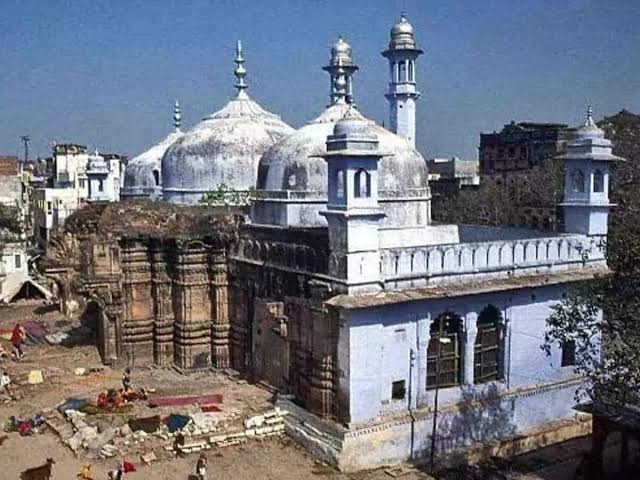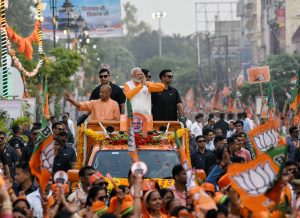Prayagraj, 19 Dec: In a landmark decision in the Gyanvapi case, the Allahabad High Court today dismissed all petitions filed by the mosque committee opposing civil cases seeking the restoration of a temple on the mosque grounds.
The high court ordered the Varanasi court to finish the hearing on one of these civil claims, which was filed in 1991, within six months.
The dispute concerns the Gyanvapi mosque, which is located near to Varanasi’s famed Kashi Vishwanath temple.
The high court was considering five applications, three of them were filed by the Gyanvapi mosque committee and two by the Uttar Pradesh Sunni Central Waqf Board. Three of these petitions questioned the legality of a litigation brought in Varanasi in 1991.
The petition, filed in Varanasi in 1991 on behalf of the god Adi Vishveswar Virajman, sought possession of the disputed property as well as permission to worship there.
The Anjuman Intezamia Masajid Committee (AIMC) and the UP Sunni Central Waqf Board had challenged the suit, arguing that it was not maintainable under the Places of Worship Act (Special Provisions) Act of 1991, which prohibits changing the nature of a holy place as it existed on August 15, 1947.
The petitioners in the 1991 litigation maintained that the Gyanvapi controversy predated Independence and hence did not fall under the purview of the Places of Worship Act. The 1991 complaint is maintainable, according to Justice Rohit Ranjan Agarwal, and is not precluded by the Places of Religious Worship Act of 1991.
Justice Agarwal reserved his decision on December 8 after hearing from the petitioners’ and respondent’s attorneys.
The court ruled today that the mosque enclosure can have either a Muslim or a Hindu character, and that this cannot be chosen at the framing stage.
“The litigation has an impact on two significant communities in the country… We direct the trial court to rule on the case within six months,” the court added.
The litigation now pending in Varanasi court demands the restoration of an old temple on the disputed location where the mosque presently stands. It claims that the mosque is an extension of the temple.





